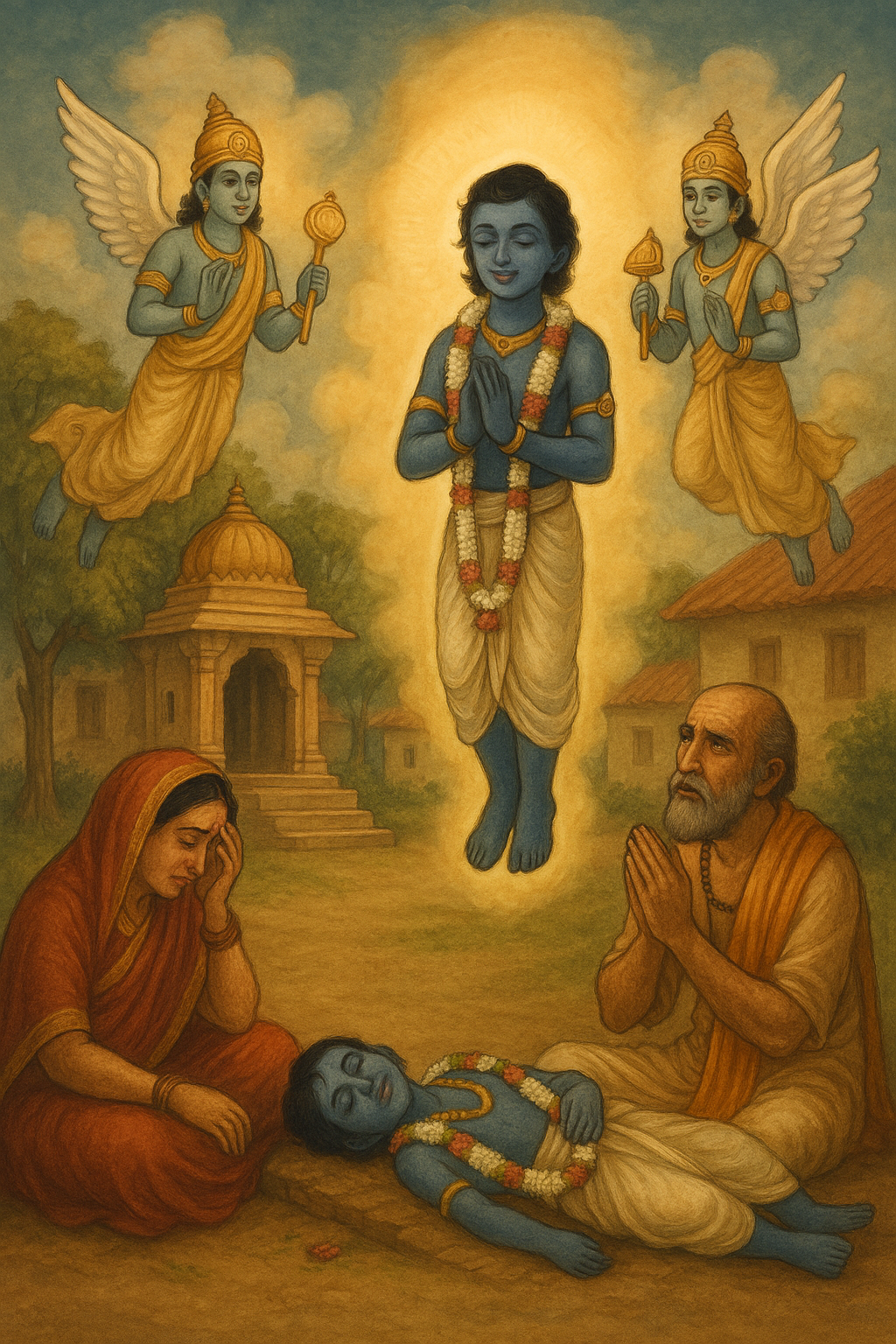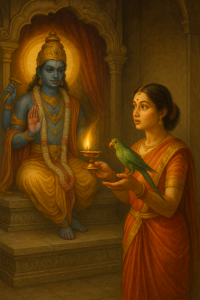In a sacred village near the banks of a holy river, there lived a brāhmaṇa couple known for their simplicity and piety. They had a young son, gentle in nature and beloved by all. The child was cheerful and innocent, often playing near the temple of Lord Viṣṇu, where his father served as a priest.
The temple deity was adorned daily with flowers, silks, and ornaments. Among the offerings, the priest would prepare a beautiful garland made of tulasī leaves and fragrant blossoms, which he lovingly placed around the neck of the Lord each morning.
One day, after the morning pūjā, the brāhmaṇa returned home carrying the garland that had been offered to the Lord. As was customary, he would distribute the remnants of the offering to his family as prasāda.
The young boy saw the garland in his father’s hand and ran toward him with joy, asking to wear it. The brāhmaṇa, smiling, placed the sacred garland around his son’s neck. The boy danced happily through the courtyard, the fragrance of tulasī and flowers surrounding him.
But that very evening, without warning, the boy fell ill and passed away suddenly, leaving his parents heartbroken and in tears. His mother fainted from grief. His father, though crushed, continued to chant the holy name, remembering that everything happens by the Lord’s will.
As the body was being prepared for cremation, an aura of divine light appeared near the child. To everyone’s astonishment, Viṣṇudūtas descended from the sky and addressed the father:
“O brāhmaṇa, your son has become blessed. Though still a child, he wore the garland that had adorned Lord Viṣṇu’s neck, and the touch of that garland purified him completely. He has been freed from all material bondage and now ascends to Vaikuṇṭha, the eternal realm of the Lord.”Before their eyes, the boy’s soul emerged from the body in a beautiful, divine form. With folded hands and a blissful smile, he offered obeisances to his parents and was carried by the Viṣṇudūtas to the spiritual world.
The entire village was stunned by the miracle, and many people began to increase their devotion to Lord Viṣṇu and worship the remnants of His offerings with great reverence.
Lessons from This Story:
The Lord’s prasāda—whether garland, water, tulasī leaf, or sandal paste—is completely spiritual and carries the power to purify and liberate.
Even a child, when touched by something intimately connected with the Lord, becomes blessed beyond imagination.
The association of sacred objects, when received with joy and reverence, can uplift a soul to Vaikuṇṭha.
Devotees should honor and respect everything offered to the Lord, for it carries His mercy.

